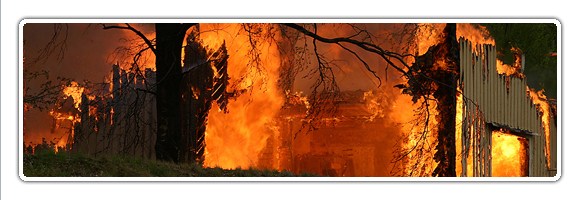
Severe Burn Injury FAQs
What is a burn injury?
Burn injuries include damage to skin, nerve tissue, muscle, and bones. The most common type of burn injury is a thermal burn that is a result from exposure to fire, scalding water, or hot objects. Chemical burn injuries are another type of burn injury.
There are four main types of burns:
- Thermal burns - are caused by contact with flames, steam, hot water, other hot liquids (like tea or coffee) and other sources of intense heat
- Light burns - are caused by contact with sunlight or other sources of ultraviolet light (like tanning booths)
- Chemical burns - are caused by contact with an acid or an alkali.
- Radiation burns - caused by contact with nuclear radiation or ultraviolet light.
How is the severity of a burn determined?
The severity of a burn injury will fall into one of three categories:
- First-degree burns - only the first layer of skin is burned. First-degree burns are characterized by reddened skin that will heal in approximately one to two weeks.
- Second-degree burns - the first and second layer of skin is burned. Second-degree burns are characterized by blisters and moist looking skin.
- Third-degree burns - all layers of the skin are burned and the underlying tissue is damaged. Third-degree burns are characterized by a black or white dry wound. Permanent scarring almost always occurs with third-degree burns.
How long can I expect recovery to take?
Recovery varies with location and type of burn injury, but scar tissue does not mature for at least a year and may require surgery.
How common are burn injuries?
In the U.S., over 2.4 million burn injuries occur each year and approximately 1.1 million burn injuries require medical attention. Almost 45,000 burn injury victims need to be hospitalized each year, while approximately 4,500 die from their injuries. Also, up to 10,000 people die every year due to burn related infections, such as pneumonia which is the most common complication among hospitalized burn patients.
How can I prevent a scalding burn in my home?
Scalding can occur when a child spills hot liquid (such as coffee or tea) on themselves or an adult misjudges the temperature of bath water. Scald burns can sometimes be the most severe type of burn injury.
To prevent scalding accidents you should turn down the temperature of your hot water heater to 125 Fahrenheit (51.7 Celsius) or less at exit, the hot water in your tank should be at least 145 Fahrenheit to destroy certain bacteria in the tank. You could also purchase shower heads that reduce water temperature as they are available at most home improvement stores.
Is there a danger of microwaves and scalding?
The FDA has received numerous reports of serious skin burns and scalding injuries around people's hands and faces as a result of hot water over-heating in a microwave. Over-heating of water in a cup or bowl can cause water to become superheated (past its boiling temperature) without appearing to boil at all. This typically occurs if water is heated in a clean cup or bowl. If foreign materials such as instant coffee or soup are added before heating, the risk is greatly reduced. If superheating has occurred, a slight disturbance such as moving the cup, or pouring in instant coffee, may result in the boiling water exploding out of the cup.
What can consumers do to avoid super-heated water?
- Always follow the precautions found in the microwave instruction manuals.
- Do not use excessive amounts of time when heating water or other liquids in the microwave.
- Determine the best time setting to heat water to a desired temperature and use that time setting on a regular basis.
We can handle your potential legal case if you are in any of these Oklahoma cities. Even if your city is not listed you may still speak with one of our Oklahoma personal injury attorneys by filling out our contact form or calling us toll-free at 1 (866) 664-0400.
Ada, Afton, Altus, Alva, Anadarko, Ardmore, Atoka, Bartlesville, Blackwell, Broken Arrow, Catoosa, Chandler, Checotah, Chickasha, Claremore, Clinton, Del City, Duncan, Durant, Edmond, El Reno, Elk City, Enid, Erick, Frederick, Glenpool, Grove, Guthrie, Guymon, Henryetta, Idabel, Lawton, Locust Grove, Mcalester, Miami, Midwest City, Moore, Muskogee, Norman, Oklahoma City, Okmulgee, Owasso, Pauls Valley, Perry, Ponca City, Poteau, Pryor, Roland, Sallisaw, Sand Springs, Savanna, Shawnee, Stillwater, Stilwell, Stroud, Tahlequah, Tulsa, Vinita, Wagoner, Weatherford, Woodward, Yukon
Copyright © 2006 Garrett Law Office, P.C.
111 W 5th Street | Tulsa, OK 74145
Phone: 918-622-9292 | Fax: 918-549-6794
